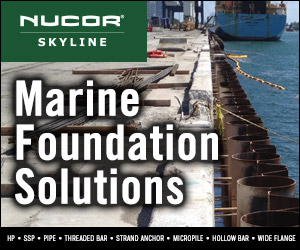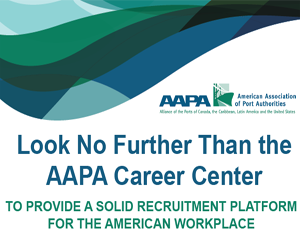The impact of any disruption in the goods movement industry can be huge, and a skilled, well-trained workforce to fill the diverse occupations in the port industry helps to prevent those disruptions. AAPA plans to explore these issues at its upcoming Workforce Development Summit, June 25-27 at Long Beach City College in Southern California. Come hear from educators, human resource professionals, colleges, universities and ports about the efforts taking place to address the changing workforce.
|


Don’t miss the May 1 deadline for submitting your entries into AAPA’s 2019 Communications Awards Program. To view the Communications Awards Program web page, find links to winning entries from previous years for review and download, and to navigate to the online entry materials, click here. On that page you’ll find a “Click here to Submit” button that will link you to the entry guidelines and upload instructions for your entries as well as a link to securely pay for your entries and a link to download the required PowerPoint slide template that must be completed for each entry submitted.
Don’t delay; start preparing your 2019 AAPA Communications Award Program submissions today. For more information and to submit, click here.
|
Mirroring news about the U.S. port industry’s direct job impacts in the March release of Martin Associates’ 2018 National Economic Impact of the U.S. Coastal Port System, a newly released study published by PricewaterhouseCoopers (PwC) for the Transportation Institute affirms the impressive economic benefits of the domestic maritime industry. The Transportation Institute’s study also supports AAPA’s longstanding assertion that the job and other economic benefits provided by the U.S. maritime industry are harmed when the federal government under-invests in the water- and land-side infrastructure (e.g., roads, rails, bridges, tunnels and federal navigation channels) necessary to keep cargo moving efficiently.
|
|
| |
|

